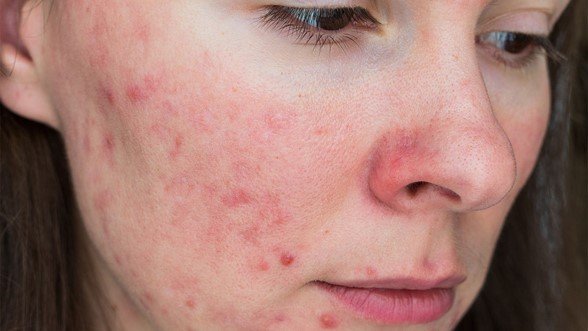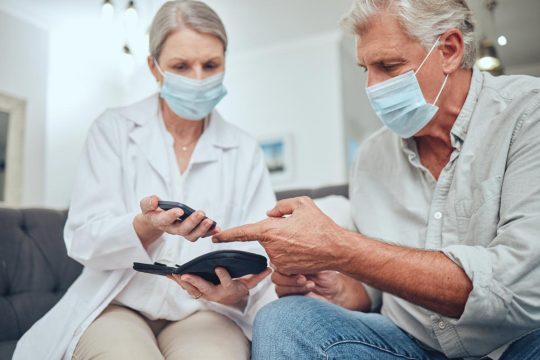Advertisment
Acne in adult women – impact on quality of life

Acne is often viewed as a disease of adolescence but for many women it persists into adulthood. In a qualitative study of 50 adult women with acne, participants described diverse lived experiences, including concerns about appearance, mental and emotional health consequences, and disruption to their personal and professional lives.
The results showed that 24 of 50 women expressed concern about their appearance — acne made them self-conscious, and many reported intrusive thoughts about their appearance and how much attention other people exhibited toward the women’s acne.
Many patients also expressed frustration with clinical management, including finding a dermatologist who made them feel comfortable and with identifying effective treatment.
The study involved patients aged 18 to 40, with moderate or severe acne, recruited from clinics at the University of Pennsylvania Health System and from a private dermatology clinic in Cincinnati. Research coordinators conducted confidential telephone interviews with study participants, during which two types of qualitative data were collected: free listing (first word that comes to mind about different aspects of acne and its management) and open-ended, semi-structured interviews. Patients also provided an overview of their medical and acne histories.
Treatment history for the study population included topical retinoids (78%), spironolactone (70%), oral antibiotics (60%), topical antibiotics and combined oral contraceptives (43% each), and isotretinoin (41%). Analysis of free-listing responses showed that the most salient terms associated with treatment success were “clear skin” (salience index 0.67) and “no scarring” (0.09). The most salient terms associated with treatment-related adverse effects were “dryness” (0.67), “redness” (0.21), and “burning” (0.14).
Concerning treatments, participants considered topical retinoids helpful for certain types of acne, but some cited barriers to use, such as dryness and peeling and limiting sun exposure. Most participants considered oral antibiotics inappropriate treatment, primarily because of limited-term effectiveness. Participants treated with spironolactone generally considered it their most effective therapy. Negative comments commonly related to prolonged time to onset of activity and adverse effects, including irregular menstrual cycles, increased need to urinate, light-headedness, and headaches.
Patients experienced with isotretinoin found it effective but potentially disruptive to everyday living because of need for multiple forms of contraception, frequent blood work, and adverse effects. Others described it as a last-resort treatment, noting the potential side effects.
The authors acknowledged several limitations of the study: relative severity of the participants’ acne; possibly limiting generalizability of the results to other patient populations; inability to compare responses by acne distribution, such as truncal versus facial only; and incomplete demographic data.
Patient preferences often are not considered in the development of acne treatment plans, which can lead to negative effects on adherence and patient satisfaction, according to Diane Thiboutot, MD, and colleagues writing in an accompanying editorial. However, efforts are underway to adopt more patient-centred approaches to assessing treatment efficacy in clinical trials of acne and other skin diseases.
“Ensuring access to care and identifying optimal treatment approaches for women with acne are needed to reduce the burden and improve outcomes in this population,” they added. “This rigorously conducted qualitative study of women’s perspective in their lived experience with acne represents an important contribution to the field of designing patient-reported outcome measures that reflect what is important to patients.”
References
Barbieri JS et al.Patient Perspectives on the Lived Experience of Acne and Its Treatment Among Adult Women With Acne: A Qualitative Study. JAMA Dermatol. Published online July 28, 2021. doi:10.1001/jamadermatol.2021.2185
Thiboutot D, Zaenglein A, Layton AM. What Matters the Most to Adult Women With Acne? JAMA Dermatol. Published online July 28, 2021. doi:10.1001/jamadermatol.2021.2184





